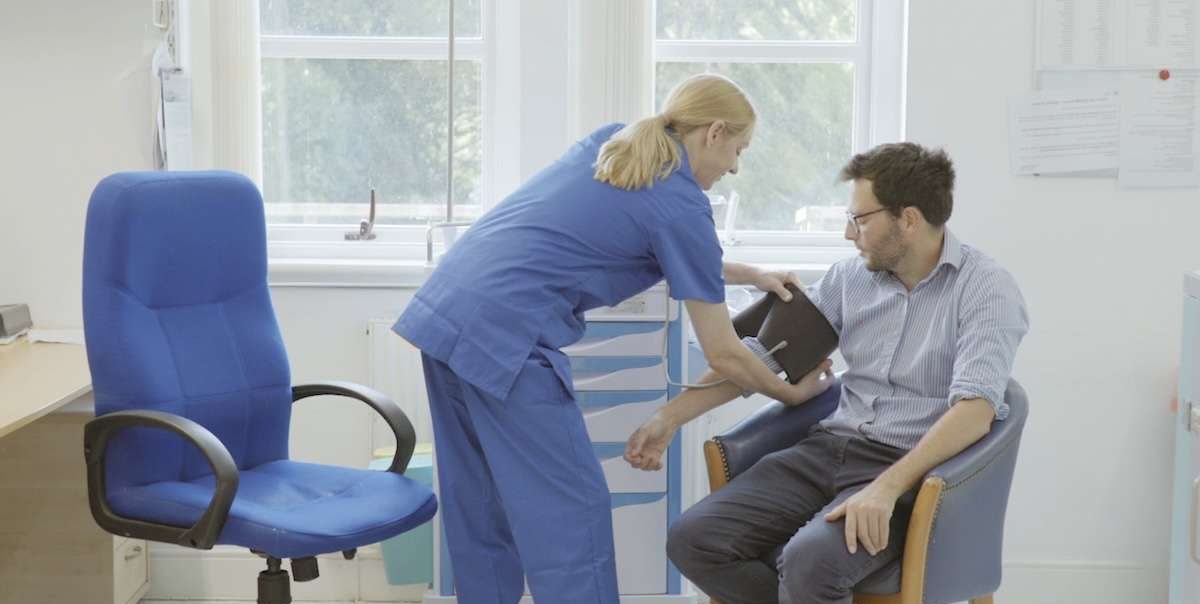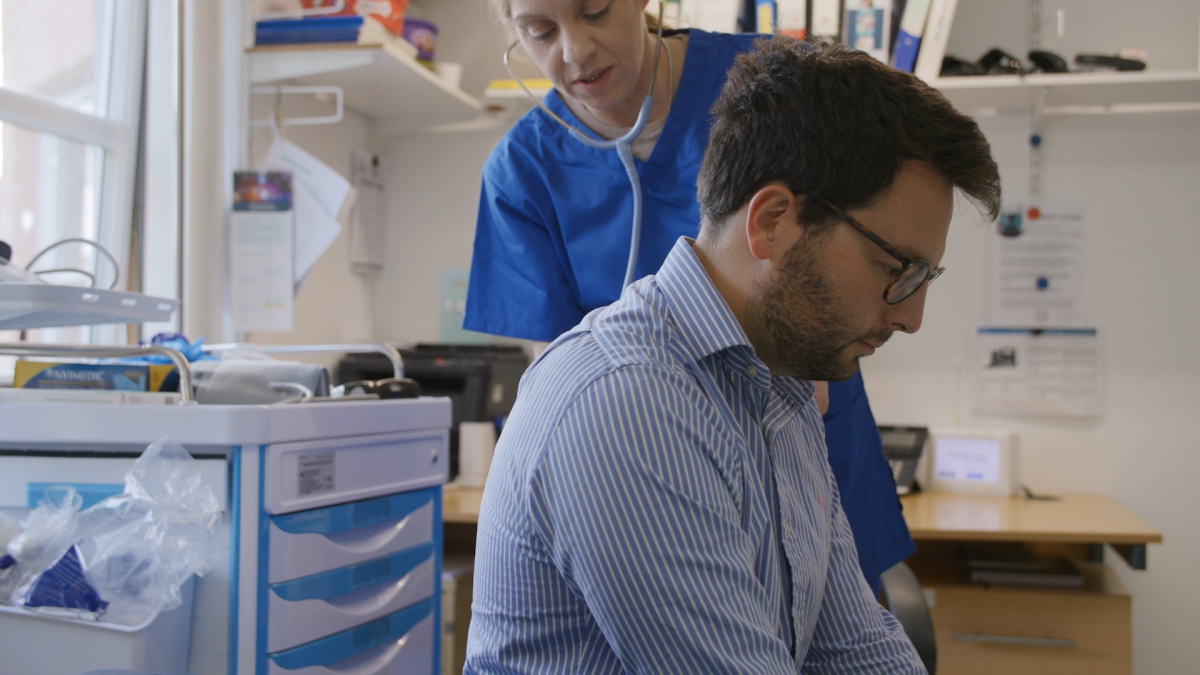
Medically Managed Detox Treatment
Residential Detox Clinic Serving Scotland and the UK
Detoxification, also known as detox, is a critical step in drug or alcohol addiction recovery for some patients. However, for many people struggling with substance addiction, it poses a significant hurdle. Distressing physical and psychological withdrawal symptoms can hinder efforts to reduce or stop substance misuse.
At Castle Craig, we recognise that understanding this struggle can inform and enhance effective residential medically managed detox treatment for patients on their journey towards recovery. Our clinical team provides dedicated mental health support throughout detox, addressing emotional distress and co-occurring conditions with compassion and clinical expertise. We use medication only with the utmost responsibility (if needed), carefully tailoring prescriptions to individual needs and prioritising patient safety at every stage. Call us on 01721 546 263 to speak with a member of our clinical team in confidence.
Key Takeaways
- Detoxification, or detox, refers to the medical interventions used to support individuals during acute intoxication or substance withdrawal.
- The process of detoxification involves clearing the body of toxins related to substance misuse.
- Detoxification can be a crucial first step in addiction recovery, but should not be viewed as a standalone treatment for substance misuse.1
- At Castle Craig, we provide a medically managed detox within our dedicated 11-bed detox unit. Our friendly and experienced team of health professionals are there 24/7 to support you through the challenges of alcohol and drug detox.
- Our detox specialists have extensive training and are experienced in delivering expert care and promoting safety and comfort during detox.
- The duration of the detox process can vary according to various factors including the substance used and the severity of dependence.7
- We recognise that a comprehensive and personalised approach to addiction treatment promotes lasting sobriety in recovery. This is why, after detox, we engage our patients in evidence-based rehab therapies aimed at managing the psychological, emotional and behavioural aspects of addiction.
What is Drug or Alcohol Detoxification?
The term ‘detoxification’ encompasses a set of medical interventions used to support someone through acute intoxication or withdrawal. It describes a clearing of toxins from the body in someone who is acutely intoxicated or dependent on a misused substance.
Detoxification aims to reduce harm caused by substance misuse and promote safety and comfort during withdrawal. It is not designed as a treatment for substance misuse but can serve as a crucial first step in recovery.1
What is a Medically Assisted Detox?
Medically assisted detox is the first step in treating drug or alcohol dependence, where prescribed medications are used to reduce withdrawal symptoms in a safe, controlled environment. It helps ease discomfort while preparing the patient for longer-term therapy and rehabilitation.
This process typically takes place in residential or outpatient settings. Medical staff monitor progress, manage symptoms, and make clinical adjustments as needed. While it still involves professional oversight, it is less intensive than managed detox and often suited to lower-risk cases or those who have already been stabilised.
What is a Medically Managed Drug or Alcohol Detox?
Medically managed detox involves 24/7 care in a hospital or clinical setting, designed for patients at high risk of severe or complicated withdrawal. It includes constant medical supervision, monitoring equipment, IV fluids, and emergency support, making it the safest option for substances like alcohol, benzodiazepines, or high-dose opioids.
This level of detox is often necessary when there’s a risk of seizures, delirium tremens or significant co-occurring health issues. The goal is to stabilise the patient physically and mentally before they move into structured addiction treatment.
All of our treatment services are compliant with guidelines set by the National Institute for Health and Care Excellence (NICE) and we are regulated by Healthcare Improvement Scotland and inspected by Intertek ISO 9001.

Start Your Recovery at a Residential Detox Centre
Substances We Treat at Our Onsite Detox Centre
At our residential detox clinic in the Scottish Borders, we help people withdraw from many different types of substance addiction. We have experience in treating dependencies on alcohol, illicit drugs and prescription medications. Below is a list of substances for which we offer expert, medically managed detoxification, delivered within a safe and structured setting by our experienced clinical team.
-
Medically Managed Alcohol Detox
At Castle Craig, we provide medical detoxification for alcohol within a safe and closely monitored environment. Withdrawal from alcohol can lead to serious complications, so our clinical team uses evidence-based protocols and medication to reduce risk, ease symptoms, and stabilise both physical and mental health from the outset.
Alcohol detox can trigger symptoms such as tremors, anxiety, nausea or, in severe cases, seizures and delirium tremens. These risks mean medical supervision is essential. Our alcohol detox programme also includes 24/7 nursing care, psychological support, and tailored treatment plans to prepare each patient for long-term recovery within our specialist residential setting.
-
Strucutured Cannabis Withdrawal Treatment
Cannabis withdrawal is often underestimated, but for regular or long-term users, stopping can bring uncomfortable symptoms like irritability, sleep disturbance, anxiety and low mood. A structured detox approach provides psychological support and routine, helping to ease the transition and reduce the risk of relapse in the early days of recovery.
Unlike substances with acute physical withdrawal, detoxing from cannabis focuses more on managing mood, sleep patterns and emotional regulation. Patients may also struggle with motivation and concentration, which is why structured days, therapeutic engagement, and emotional support are essential during this stage of treatment.
-
Cocaine Detox in a Residential Setting
At Castle Craig, cocaine detox is delivered in a secure and structured residential environment, where patients can begin recovery away from daily triggers and pressures. While cocaine does not typically cause dangerous physical withdrawal, the emotional and psychological effects can be intense and require expert support.
Symptoms such as depression, agitation, cravings and fatigue are common in the early stages of cocaine withdrawal. Our clinical team provides round-the-clock care, therapeutic support, and a stabilising daily routine to help patients manage these challenges. Detoxing in a residential detox centre also reduces access to the substance, giving space for real psychological healing to begin.
-
Inpatient Heroin Detox with 24-hour Support
Heroin withdrawal can be physically and emotionally intense, often involving symptoms like severe aches, chills, nausea and insomnia. Inpatient heroin detox provides 24-hour support in a safe place, where medical staff can ease discomfort and reduce risk using appropriate medication and continuous monitoring.
Because heroin significantly alters the brain’s reward system, detox involves managing both acute withdrawal and the longer-lasting emotional effects. Structured care, supervised medication use, and psychological support help stabilise patients and prepare them for further heroin rehab treatment. A calm, controlled environment also helps reduce cravings and the likelihood of early relapse.
-
Opioid and Prescription Painkiller Withdrawal Treatment
Opioid and prescription painkiller dependence can lead to severe withdrawal symptoms that are difficult to manage without professional medical support. Symptoms may include muscle aches, nausea, anxiety, restlessness, and intense cravings, making it hard to stop using without relapse.
Withdrawal from prescription opioids like codeine, tramadol and oxycodone varies in intensity and duration depending on the individual’s history and use. In a professional prescription drug detox setting, patients receive 24/7 care and emotional support, which not only improves safety but also increases the likelihood of progressing into longer-term addiction treatment. Personalised opioid detox plans can also address polydrug use or co-occurring mental health conditions, setting the foundation for sustainable recovery.
-
Benzodiazepine or Sedative Detox Programmes
Withdrawal from benzodiazepines like diazepam, lorazepam or sleeping pills must be carefully managed due to the risk of seizures and severe rebound symptoms. Detoxing too quickly or without medical support can be dangerous. At Castle Craig, patients receive gradual dose reduction, close monitoring and therapeutic support tailored to their clinical needs.
Benzodiazepine detox is often more complex and prolonged than other substances due to the drug’s effects on the brain’s GABA system. Castle Craig’s clinical team carefully designs benzo tapering plans that minimise distress while prioritising safety. Many patients entering for sedative detox also experience anxiety, insomnia or trauma-related conditions, all of which are supported as part of a comprehensive treatment pathway.
-
Ketamine, Ecstasy and Club Drug Detox Care
Detox from club drugs like ketamine, ecstasy (MDMA), GHB and others can bring unpredictable physical and psychological symptoms. While withdrawal may not always be physically dangerous, users often experience depression, anxiety, insomnia and cognitive issues that need professional support to manage safely and effectively.
The effects of party drug substances on mood, memory and sleep can persist well beyond initial withdrawal, making medical supervision and structured care essential. Detox plans may include mood stabilisation, therapeutic engagement and monitoring for signs of psychosis or emotional instability. Professional detox support helps reduce the risk of relapse and prepares patients for further treatment or psychological therapy.
-
Private Methadone and Crystal Meth Detoxification
Coming off methadone or crystal meth can cause intense physical and psychological symptoms, including agitation, low mood, paranoia and fatigue. At Castle Craig, crystal meth detox is delivered in a secure, private setting with 24/7 medical supervision and therapies designed to support both physical stabilisation and emotional recovery.
Methadone withdrawal is often prolonged, with symptoms lasting several weeks due to the drug’s long half-life. In contrast, crystal meth detox may trigger acute psychiatric symptoms like hallucinations or severe anxiety. Our team addresses both with tailored medication plans, structured routines and specialist care that prepares patients for longer-term rehabilitation and relapse prevention.
What Happens During Medically Managed Detox?
At Castle Craig, we provide a medically managed, also known as medically assisted, residential detox. This means that all of our patients are supervised by our clinical team in a structured, comfortable setting. For patients who have developed a strong physical dependence on a substance and/or have complex health needs, a medically managed detox delivers the 24/7 care needed to support them through the process.2
Withdrawing from substances like alcohol and benzodiazepines can cause severe, life-threatening withdrawal symptoms, including seizures and delirium tremens.3,4 Medical supervision during the detox process can help prevent and promptly address such symptoms.
The detox process will differ for each patient. For example, someone detoxing from opioids will receive specific medications to ease physical withdrawal symptoms, whereas someone detoxing from cocaine may not require medication at all.5,6





What to Expect from the Drug or Alcohol Detox Process at Castle Craig
Beginning detox for addiction can feel daunting, but at Castle Craig, we provide a safe and supportive environment to help you through this vital first stage of recovery. As a leading drug and alcohol detox clinic, our approach is both medically responsible and emotionally supportive, with 24/7 care from experienced clinicians.
The detoxification process begins with a full assessment of your physical and mental health. Medications may be prescribed to ease withdrawal symptoms, and our team monitors progress closely to ensure safety and comfort. Our goal is to help stabilise the body and mind before longer-term rehabilitation. Read on for a more detailed breakdown of our drug and alcohol detox process.
Arrival and Initial Assessment
Upon arrival at our residential detoxification centre, you will be greeted by one of our friendly admissions managers. They will have been involved in carrying out your initial assessment and admitting you for treatment. The admissions manager will introduce you to the medical team who will carry out your clinical assessment. This can then be used to shape your detoxification plan which is reviewed by a Consultant Psychiatrist.
Medical Evaluation
Physical Examination and Further Investigations: A physical examination is performed by the doctor, who may also recommend additional investigations, such as blood tests, to gain a complete understanding of your health status. When the doctor has completed the assessment, any appropriate medications will be prescribed.
Immediate Care and Medication: If the nurse conducting your clinical assessment has any concerns, you will be promptly referred to one of our specialty doctors who can administer medication to stabilise you before your evaluation.
Diagnostic Procedures: Early in the admissions process, a urine sample is collected for analysis. The doctor will then conduct a comprehensive review, which includes assessing your substance misuse and medical history and examining any relevant documents from your GP.

Orientation and Settling In
After your medical evaluation, the nurse will show you to your room. To establish a secure and substance-free environment, the unpacking process is supervised. This allows us to make sure you haven’t inadvertently brought any substances into the unit.
We understand that the thought of detoxification and withdrawal can be stressful; however, medically managed detox promotes high levels of safety and patient comfort. Our team of fully trained medical staff works hard to support your well-being at all times during this process.
Free Addiction Assessment
Taking the first step and asking for help can feel daunting, but our team is here to assist you.
Our Detox Specialists




Castle Craig’s team of dedicated detox specialists has extensive training in drug and alcohol detoxification and is committed to guiding you through each step of the process. They understand the challenges that can occur during detox and are prepared with various techniques aimed at making your experience as comfortable as possible. Our team’s compassionate approach helps to ensure that you never feel alone or overwhelmed during this critical period.
Our therapists and medical professionals are highly qualified and experienced in substance misuse treatment. They are experienced in a wide range of therapies and many are registered with BACP or COSCA or have other qualifications in psychotherapy and/or mental health. Many have recovered from addiction themselves. Medical treatment at Castle Craig is overseen by our medical director Dr Peter McCann, MBBS, MSc, MRCPsych.

The Importance of Safety During Detox
Safety is a vital consideration during any detox process. As the body has become dependent on a substance, its absence can lead to severe, or even life-threatening, withdrawal symptoms.7
Detoxing in a supervised and controlled setting, like the Kirkurd unit at Castle Craig, is recommended for closely monitoring symptoms and easing discomfort. In these settings, medical staff can intervene if necessary to relieve uncomfortable withdrawal effects.
A well-managed, supportive and effective detox process not only promotes safety and comfort but also significantly reduces the patient’s risk of relapse. At Castle Craig, our detox programme integrates medical care and psychological support to ensure that patients are holistically supported for whole-person healing and lasting sobriety.
Related Guides on Medically Managed Residential Detox
Detox Centre | Inpatient Detox | Alcohol | Drugs | Cocaine | Heroin | Crystal Meth | Valium | Tramadol | Benzodiazepines | Xanax | Codeine
What is the Medical Detoxification Process for Drug or Alcohol Addiction?
Detoxification for drug or alcohol addiction is often the first step in overcoming addiction. This carefully managed process helps patients safely withdraw from substances while providing the foundation for long-term recovery. Here, we outline the essential stages involved in the detoxing process.
Comprehensive Assessment Before the Detox Process
Detox begins with a detailed medical and psychological assessment. This evaluation identifies the type of substance involved, the severity of the dependency and any co-occurring mental health concerns. From this, a personalised plan is developed to ensure safety and comfort throughout the process.
Designing a Substance Addiction Detox Process
Following the confidential assessment, an abstinence-based plan may be recommended if medication is not required. For those experiencing more severe withdrawal symptoms, carefully prescribed medications can help manage discomfort and promote stability during detox.
Monitoring During the Drug Withdrawal Process
Throughout the withdrawal process, individuals receive round-the-clock monitoring from experienced medical professionals. Symptoms vary depending on the substance, but each stage is managed with care to support both physical and emotional wellbeing, reduce risks, and provide a sense of stability.
Transitioning After the Detoxification Process
Once detox is complete, patients usually move into a structured rehabilitation programme. This next phase focuses on exploring and addressing the underlying causes of addiction through therapies such as individual counselling, group sessions, and evidence-based treatments that support lasting recovery.
A Holistic Approach to Recovery
Detoxification is more than simply overcoming physical dependence; it marks the beginning of a wider healing journey. By combining clinical expertise with compassionate care, the process helps individuals establish a solid foundation for lasting change.
Contact Castle Craig Detox Facility Today
We offer free drug and alcohol addiction assessments as part of our detox admissions process.
How Long Does Detox Usually Last?
The onset and duration of withdrawal effects will vary depending on the substance used and the severity of the substance dependence.7 The alcohol or drug detoxification process can therefore differ between patients.
The duration of detox side effects can help inform the general length of time that withdrawal can take for each substance. Examples of typical substance detox timelines can be found in the list below:7
- Stimulant Detox: Withdrawal effects from stimulants, including cocaine and methamphetamine, can start within 24 hours of last use and typically persist for three to five days. If psychotic symptoms are present, these will require medical treatment but can resolve within one week.
- Alcohol Detox: Withdrawal effects can appear within 6–24 hours after alcohol use has been stopped. These effects can be severe or even life-threatening in some cases, necessitating close monitoring during the detox process. Typically, alcohol withdrawal effects persist for 2–10 days
- Opioid Detox: Withdrawal symptoms from short-acting opioids, like heroin, can begin 8–24 hours after last use and typically last for around 4–10 days. Someone taking long-acting opioids, like methadone, can experience withdrawal effects 12–48 hours after last use, which persist for 10–20 days
- Cannabis Detox: Cannabis, or marijuana, withdrawal symptoms are generally milder and start within 24–48 hours of last use. They can last for around one to two weeks or more, depending on the level of misuse.
- Benzodiazepine Detox: Short-acting benzodiazepines, like temazepam, are associated with withdrawal effects starting within 1–2 days and lasting 2–4 weeks or longer. Long-acting benzodiazepines, such as diazepam, can precipitate withdrawal effects within 2–7 days of cessation that persist for 2–8 weeks or longer. Detoxing benzodiazepines can therefore be a lengthy process. Due to the risk of severe withdrawal symptoms, regular monitoring and gradual tapering are often recommended.
In patients who are using more than one substance, i.e., polysubstance use, treatment approaches should be optimised to manage each substance use disorder. A polysubstance detox can therefore present additional challenges compared to a mono-substance detox.9
It’s important to note that detox programmes are not designed to deliver long-term treatment for social, behavioural and psychological issues associated with substance misuse.1 Following detoxification, patients can engage in counselling and psychological therapies to help manage psychological symptoms and/or any co-occurring disorders, also known as dual diagnosis.7
At Castle Craig, our team of clinicians and therapists will work with you to help you cope with mental health symptoms and equip you with the tools you need to manage psychological factors related to addiction.
What Happens After Detox?
The detox process serves as the foundation for comprehensive healing. Upon completing this process at Castle Craig, you will move into the main castle to begin the therapeutic phase of treatment, which focuses extensively on psychological therapy.
During this next stage, you will take part in various forms of holistic therapies, which are tailored to address the underlying psychological, emotional and behavioural aspects of drug or alcohol addiction. Our expert therapists will work closely with you to equip you with healthy coping strategies to help you maintain your recovery once inpatient treatment has been completed.
At Castle Craig, every patient is supported in their unique journey to make their path to recovery more sustainable.
Is it Safe to Detox From Drugs or Alcohol at Home?
Detoxing at home from drugs or alcohol is not safe and can be extremely dangerous, especially with substances like alcohol, benzodiazepines or opioids. Without medical supervision, some people may be at risk of seizures, hallucinations, heart complications and severe psychological distress. Sudden withdrawal can lead to life-threatening outcomes, even for those who appear physically healthy.
If you’ve already started detoxing at home and are experiencing serious symptoms such as confusion, chest pain, seizures or extreme agitation, call emergency services immediately. For those considering a safer alternative, we strongly advise consulting a healthcare professional who may recommend a medically managed detox in a residential setting. To speak with our admissions team, call us confidentially on 01721 546 263.
Does Private Health Insurance Cover Medically Assisted Detox in the UK?
Yes, private health insurance can cover medically assisted detox in the UK, but it depends on the details of your individual policy. Coverage may vary based on your provider, level of cover, and whether detox treatment is considered medically necessary under your plan.
If your insurer authorises residential detox treatment at Castle Craig, we accept policies from many major health insurance providers, including Bupa, Vitality, Cigna, WPA and Aviva. Our admissions team can help you understand what you have been approved for and assist you in preparing for your stay.
Private Residential Detox and Rehab Options
Private Addiction Rehab | Accredited Rehab Facility | Discreet Rehab Programme | Evidence Based Addiction Treatment | Luxury Rehab Centers | Residential Addiction Rehab | Inpatient Addiction Treatment | Residential Detox Center | Addiction Recovery Retreats | Medically Managed Detox
Discover Recovery at Castle Craig
With over three decades of experience, Castle Craig has helped countless patients regain control of their lives. During detox, our patients’ comfort and safety are our utmost priority with personalised plans designed to cater to each person’s unique needs and circumstances.
We understand that taking the first step can feel overwhelming, but you don’t have to do it alone. Our compassionate team is here to listen, support and guide you every step of the way. Call us in confidence on 01721 546 263 or fill out our online enquiry form – we’re ready to help you start your recovery.
Confidential Addiction Assessment
Compassionate, expertly delivered evidence-based practices and a patient-centred approach are at the heart of our treatment model. Request a call-back from one of our professionals on any day of the week.
Frequently Asked Questions on Drug and Alcohol Detox
-
Can I Detox From Drugs at Home, and Is It Safe?
At-home detox is not widely recommended for managing the effects of alcohol and drug withdrawal. This is because withdrawing from certain substances, particularly alcohol, benzodiazepines or opioids, can lead to severe and sometimes life-threatening medical complications. These require immediate professional intervention and attempting a home detox means you won’t have immediate access to the medical support you need to manage severe withdrawal symptoms effectively. People who detox at home without appropriate support are also at increased risk of relapse. Due to a reduction in tolerance during detox, relapse can lead to overdose.7,10
-
Will I Be Safe During My Detox Plan?
At Castle Craig, your safety is our utmost priority. We are committed to ensuring that every patient experiences a secure and supportive environment during the detoxification process. Our detox plans are designed and administered by a team of experts in addiction medicine. Our specialists possess extensive experience and knowledge, ensuring that your detox is as safe and comfortable as possible.
-
How Will I Feel During and After Detox?
The experience of detox can vary from person to person as it is influenced by several factors such as the type of substance used, severity of substance use disorder and your physical and mental health.10
During detox, you may experience some physical discomfort due to withdrawal symptoms like nausea, muscle aches, headaches, tremors, or sweating. Feelings of fatigue and low energy can also occur as a result of sleep disturbances. It’s not uncommon to experience psychological symptoms, such as anxiety or depression, during substance withdrawal.
After detox, as the body clears the substance, patients can experience an improvement in physical health and energy levels. Withdrawal effects typically begin to subside, though the timeline can vary according to the substance used. It’s important to note that some withdrawal symptoms, such as cravings, can persist for some time after the acute detox process.7
-
What are Some of the Common Drug Withdrawal Symptoms?
During the detox process, Withdrawal symptoms can vary depending on the type of substance used, the duration and severity of use and an individual’s general health.7,10 However, there are some common symptoms that many people experience during withdrawal, including physical and psychological effects.
Common physical withdrawal symptoms include nausea and/or vomiting, diarrhoea, insomnia, headaches and muscle pain. Some common psychological symptoms include anxiety, agitation and restlessness.7
-
Do You Provide Detox-Only Programmes?
We understand that people seeking recovery often enquire about detox-only programmes, hoping for a quick and efficient way to cleanse their bodies of misused substances.
At Castle Craig, we know that a comprehensive approach to addiction treatment is needed. Whilst detoxification can be a crucial first step in the recovery process, it is essential to understand that it addresses only the physical dependence on substances. Detox alone isn’t sufficient as it doesn’t address the factors underlying addiction. Additional treatment is required to effectively manage substance use disorders and address any comorbid health conditions.1,7
-
References
- Substance Misuse and Mental Health Services Administration (US). Chapter 1: Overview, Essential Concepts, and Definitions in Detoxification. In: Detoxification and Substance Misuse Treatment: A Treatment Improvement Protocol (TIP). No. 45. Rockville, MD: Center for Substance Misuse Treatment; 2006.
- National Health Service (NHS). Tier Four Funding of NHS Inpatient Detoxification Units (PDF).
- Rahman A, Paul M. Delirium Tremens. Treasure Island (FL). StatPearls Publishing; 2024.
- O’Keefe Osborn C, Block DB. How Long Does Withdrawal From Benzodiazepines Last?
- Shah M, Huecker MR. Opioid Withdrawal. Treasure Island (FL). StatPearls Publishing; 2024.
- MedlinePlus. Cocaine Withdrawal.
- Geneva: World Health Organization (WHO). Chapter 4: Withdrawal Management. In: Clinical Guidelines for Withdrawal Management and Treatment of Drug Dependence in Closed Settings. Online: National Library of Medicine; 2009.
- Connor JP, et al. Clinical management of cannabis withdrawal. Addiction. 2022;117(7): 2075–95. doi: 10.1111/add.15743.
- Anderson RE, et al. Patterns of co-occurring addictions, posttraumatic stress disorder, and major depressive disorder in detoxification treatment seekers: Implications for improving detoxification treatment outcomes. Journal of Substance Abuse Treatment. 2018;86: 45–51. doi:
- WebMD. Addiction: What to Know About Detox.